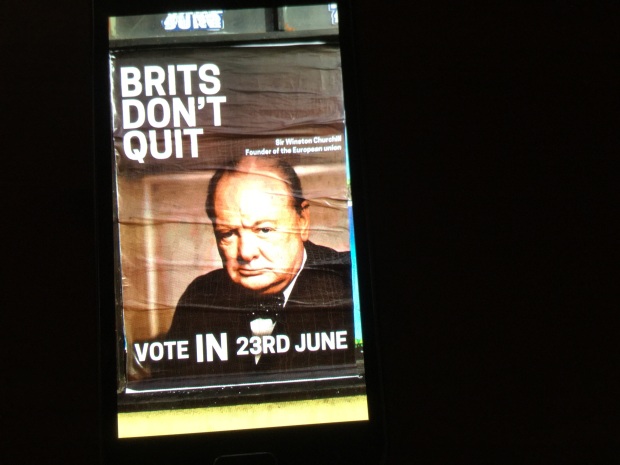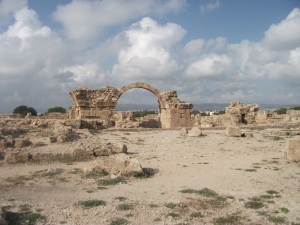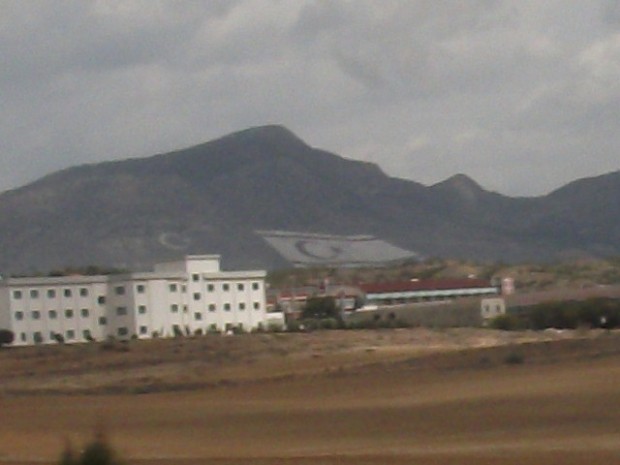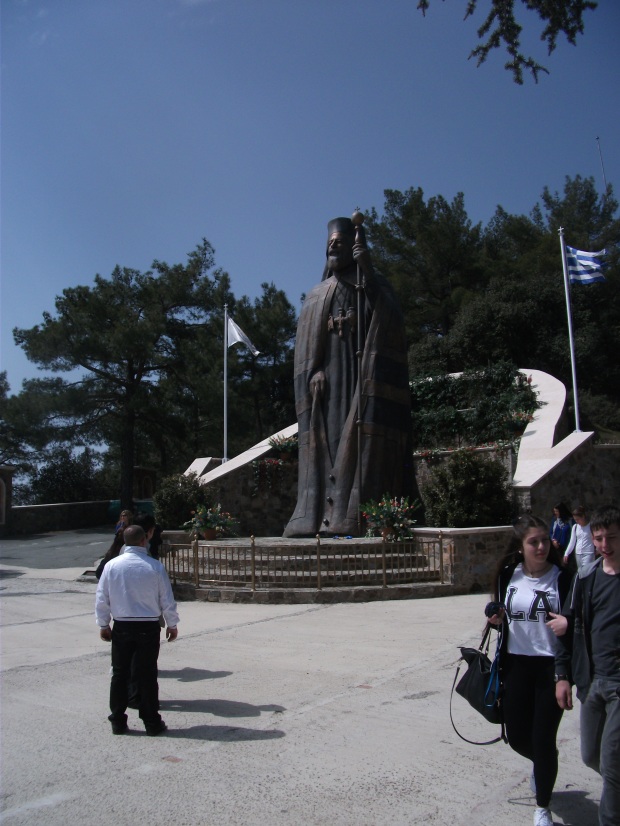With only a few days to go before the potentially historic EU referendum on whether the UK should leave or remain within the European Union, Dr Philip Larkin, an academic from the school of law at Brunel University in London argues the case for remaining.

Introduction
With less than one week to go now until the upcoming referendum, I have been asked to set out my reasons why the United Kingdom should remain in the European Union. Despite all the hype in media over the past few days, I still believe that the UK electorate will vote (albeit not by a huge majority) to remain in the EU. The reason for this, as columnist Philip Collins [not the much-maligned former Genesis drummer and vocalist – in much the same way as the present author is not the deceased poet and librarian] has argued convincingly (and which I will examine further below), is that Brexit ultimately means an enormous lot of uncertainty for the UK, particularly in relation to the economy, and uncertainty is an ally of caution and conservatism. I also believe that this erring on the side of caution will intensify over the course of the next six days as the reality sinks in that the referendum is not a game of shadow boxing, or the equivalent of a by-election, but the real deal carrying grave consequences. This will require those of us who support remain to hold our collective nerve until next Thursday night. Although I very strongly believe that the UK should stay in the EU, I also believe that a person can passionately support Brexit without being either mad or bad. With few exceptions, the referendum campaign has been conducted in a moderate fashion, and this article will follow suit. The issues are too important to be obscured by personal mudslinging. The article will examine my reasons for wishing to remain, while rebutting the reasons put forward for Brexit, under a number of headings.
Parliamentary Sovereignty and the EU “Superstate”
One of the central arguments of the Brexit campaign (although it has been played down somewhat lately) is that leaving the EU would restore the Parliamentary sovereignty to the glory it had once enjoyed in the heady days of Imperial power, although this is not openly stated. I have selected this heading at the beginning because of all the Brexit arguments it is probably the most easily rebutted. To begin, as Professor Sir Elihu Lauterpacht stated, “Parliamentary Sovereignty ends where Britain’s international obligations begin.” In other words, the signing of any international treaty involving co-operation, be it on defence, trade, or intellectual property, entails some pooling of sovereignty, and has done so since the Anglo-Portugese Alliance ratified by the Treaty of Windsor in 1386. By signing a treaty, or joining an international organisation, the UK is effectively stating that, (in accordance with Dicey’s theory of sovereignty) although technically Parliament is free to make any law whatsoever, it will voluntarily restrain itself from legislating against the aims of the treaty. I have often asked my Constitutional Law students: “Can Parliament, under Dicey’s pure theory of Parliamentary Sovereignty, create an Act of Parliament banning smoking in the streets of Moscow/Paris/New York?” Some are genuinely surprised when informed that, in theory, Parliament can do this. My next question is:
“Why then, does Parliament not make such legislation?”
The answer, invariably, is that it would be ridiculous and pointless. Quite so:
Parliament has always been constrained by what it is politically expedient and acceptable. Leaving the EU will involve the UK having to sign a plethora of trade and other agreements with other countries and trading blocs, including the EU itself. These treaties will also limit Parliamentary Sovereignty. Even a successful immigration policy (on which more below), which the Brexit camp argue will be easier outside the EU, will necessitate the UK having to having to reach agreement with the remaining EU nations, again involving the pooling of sovereignty.
Related to this issue, stories about the eventual drift towards a federal European “superstate” amount to nothing more than a baseless canard. While it is true that some of the founders of what became the European Union may have had pretensions for an economically, politically, and socially united Europe, these aims did not take into account the great cultural differences between different European states. As Lord Denis Healey wrote, those nation states which form the EU have developed through singular historical and social processes. While federalism may have been a suitable form of government for scattered English speaking agricultural communities of largely British descent, as with the United States and Australia, it is totally inappropriate for a continent as culturally, linguistically, economically, and socially diverse as Europe. Healey also stated that France, with its traditions of independence, would actively prevent the creation of a superstate. The improbability of achieving a common European foreign policy in any other field except trade was underscored sharply by the second Gulf War in 2003, when the UK, the Netherlands, and many of the Central and Eastern EU states supported the U.S. invasion of Iraq, while France and Germany stood resolutely against it. In my view a common European army remains a very far-off possibility, if, indeed, it even is a possibility.
Fears about a European superstate also grossly exaggerate how much of national life the EU actually has responsibility for. The EU itself, despite pretensions to more, remains very much a giant trading block, with product standards harmonised as far as possible to facilitate free movement of goods, persons, services and capital. There is no pressure on the UK to join the Eurozone, and many remain supporters would not welcome any move towards adopting the Euro even in the medium to long term, myself included. The recent Great Recession has demonstrated the benefit of a nation being able to control its own currency, and set its own interest rates. While there does remain quite a deal of democratic deficit within the EU institutions, with the unelected Commission perhaps wielding too much authority, surely these are problems which can be mended with time and nudging from nations like the UK, Sweden and others? For the future health and survival of the EU, it is vital that the UK remains a member.
It is not an exaggeration to state that enemies of the West and Enlightenment values would be delighted to see fragmentation of the EU, which represents many of the qualities which have long made the West economically prosperous, democratic, and respectful of human rights. It is said that Vladimir Putin was desperate to see Scotland leave the UK. He is equally anxious (if not more so) to see the UK depart from the EU, as are other unfriendly parties in the world. Unsurprisingly, Donald Trump is a fan of Brexit.
The EU and the Economy
It is frequently argued by Brexit supporters that leaving the EU would somehow “liberate” the British economy from the stifling effects of a European continent currently experiencing stagnant levels of growth. The UK would then, in theory, be free to pursue even more beneficial trade deals with the remainder of the EU and the wider world, in particular the growing economies of the East. I realise that it is a cliché to say, but my gut feeling is that if something looks too good to be true, it usually is. Neither am I alone in believing this: in a recent poll by Ipsos MORI for the Observer, 90 per cent of economists said that they expected Brexit to damage the economy, with just four per cent believing it to be beneficial. That degree of unanimity on any poll of any group of people is almost without precedent. As Paul Johnson, director of the Institute of Fiscal Studies, has asserted, in the short run Brexit would definitely create uncertainty. In the immediate aftermath the pound, and probably the stock market, would dive, making us all poorer. Even one of the few pro-Brexit economists, former Boris Johnson adviser Gerard Lyons, has accepted that short-term uncertainty would lead to reduced growth in the immediate future.
So what about the long term effects of Brexit? Would it be a case of suffering short-term pain for long-term gain? The simple answer is that no-one really knows, and no-one really can predict. Brexiteers tend to take the sanguine view that “the rest of the world, including the EU will still need to/want to trade with us, and we’ll soon be trading more than ever before.” There are serious reasons to doubt such optimism. Yes, it is true that the rest of the EU will still need to trade with the UK, and in time a working relationship will be arrived at. However, why on earth should anyone be impressed by having in the future what they already have now? As the Washington Post put it yesterday:
“Countries don’t knowingly commit economic suicide, but in Britain, millions seem ready to give it a try. On 23 June the United Kingdom will vote to decide whether to quit the European Union, the 28 nation economic bloc with a population of 508 million and a gross domestic product of almost $17 trillion. Let’s not be coy: Leaving the E.U. would be an act of national insanity.”
It is beyond my poor power of expression to put it any clearer than this passage. Some will ask “but we’ll still be a great trading nation if we leave the EU, won’t we?” My answer to that would be “maybe, but for goodness sake why take massive risks with the goodwill of our greatest trading partners, and leave the world’s largest trading area?” Why should it be imagined that Germany, with its great influence over EU policy, be disposed to make favourable trade agreements quickly with a non-EU UK, which, by leaving the EU had wounded, perhaps mortally, the institution which has long been central to German foreign and economic policy? Some people dismiss all too quickly as bluff statements from the European Commission, President Obama, and Hilary Clinton, that in the event of Brexit, the UK would be obliged to “go to the back of the queue” when it comes to trade agreements. To me it is perfectly logical that countries like the US and other EU states, to name but some, should be less than welcoming to a UK which had left the EU. To begin, one of the major attractions of the UK for foreign investors is not only that it is “a good place to do business”, but also it has access to such a huge market. This is why it has been a central plank of US foreign policy from the time of President Kennedy onwards that the UK should join, and remain, a member of a Common European Market. Leaving would cut us off from the greatest free market in the world, and probably damage our relations with the US also. Similarly, there has been mutterings from Japanese car manufacturing companies that in the event of Brexit, they would consider very seriously the relocation of their factories to other nations still within the EU. Again, this is a perfectly logical view to take from the perspective of foreign investors: why stick with a UK which has cut off its nose to spite its face when we could move our operations to Poland, where the people will be glad of the work, we can pay the workers less, and they still have access to the free market? It is often said that the secret of a happy life is being willing to give and take: it is no different in the life of nations, particularly a great trading nation like the UK. Established mutual goodwill counts for so much, even in today’s world of instant communication.
What about the argument that Brexit would make us freer to pursue ever greater trade with the emerging markets in the world? Well, my counter question to that is: what exactly is stopping us from doing more of that now? After many years, the realisation has dawned on British manufacturers and service providers that they now have to market their products fiercely and energetically throughout the world. This stands in some contrast to the 1970s, when Denis Healey as Chancellor of the Exchequer lamented that the UK was woefully far behind other European states when it came to marketing their products, a result, he believed, of having a captive imperial market for so long. Prime Minister Cameron has set the political pace for what UK firms should be doing aggressively, by his trade visits to India and elsewhere, and it also explains why planeloads of manufacturers like Scotch whisky distillers are heading out to places like China and Brazil to boost their sales. I struggle to understand how leaving the EU would make the task of finding new markets any easier. In addition, as the Economist has very eruditely pointed out, most of the factors hindering economic growth in the UK stem from long standing domestic economic and education policy, such as the problems of poor infrastructure, lack of new housing, low productivity, and, of course the ubiquitous skills gap. These are much bigger obstacles to growth than any mythical EU regulations.
Furthermore, the Brexit camp frequently take too little account of the changed fortunes of the UK since the time it joined the EEC back in 1973. At that time Britain was generally judged to have taken over Turkey’s mantle as “the Sick Man of Europe”, going through possibly the lowest point of post-Imperial decline in those years. This is not the case nowadays: by 2030 the UK is predicted to be the most populous state in the EU, and its economy looks set to overtake than of Germany, which will make it for a period the fourth largest economy in the world. With this eventuality as a backdrop, Brexit appears to me to be akin to walking abruptly out of a long, tough, business meeting, just when matters are turning decisively in our favour. Another important point to consider is that the UK is ideally placed to champion the successful completion of the Transatlantic Trade and Investment Partnership (TTIP), on which there is much misunderstanding, but which has the potential to add hugely to both the British and other EU economies, and which encapsulates much of the free-trade spirit of the great economist Adam Smith.
Finally, it is worth mentioning that even after 41 years since the last referendum on EU membership, the Leave campaign still appears to be very fragmented as to what sort of example a non-EU UK should emulate. Some cite the Norway as a case study in “having your cake and eating it”, with it not being an EU member yet still having access to EU markets through being included in the European Economic Area (EEA). Yet this overlooks certain key points. First, Norway has never been an EU member state, so there is no issue with them voting to leave a club that they have been in for over 40 years. Secondly, Norway still has to conform with all of the EU trade regulations and standards, and is almost completely powerless to influence EU trade policy. Other Brexiteers would cast us in the role of a northern European Singapore or Hong Kong should we leave the EU, forming a new free-trade area with states such as (per Michael Gove) Albania. This presupposes to some extent that the UK can somehow physically slip its geographical, historical, and cultural moorings and choose a completely different role in the world. Nations simply cannot choose roles like an actor may choose a part in a play. It has been asked of me in the past “why can’t we in the UK be more like Switzerland, not in the EU and still very wealthy, with minimal international alliances and commitments?” My reply is: “Why can’t an apple be more like an orange?” Sometimes an image says a thousand words. The varying examples cited above underscores the point that the Brexit camp is, in reality, hugely uncertain among themselves as to what Exit will actually mean for the UK, and, more importantly, as to where they wish to lead us. This is scarcely a sound basis for taking such a momentous risk with our future.
Immigration
The control of immigration into the UK has been a central plank in the Brexit campaign. It is pointless to try to gloss over this very emotive topic, so I will try to address it here. It has already been stated above that even in the event of us leaving the EU, a successful immigration policy would require us to arrive at some sort of agreement with the remaining 27 member states, something which they may be less than generously willing to do. Related to this, the reality is that many migrants come from outside the EU: leaving the EU will not change this. From the perspective of London (where this author lives), immigration over the centuries has made the city perhaps the most cosmopolitan in the world, which also explains its great economic and cultural success. One need only think of the Flemish cloth merchants of the 14th Century, the influx of French Huguenot immigrants in the late 17th Century, the Jewish immigrants fleeing the Russian pogroms, and latterly, Poles, Latvians and Lithuanians; all of these have enriched both London but also the rest of the UK. In an open and free (and now growing) economy like that of Britain, there will always be a need for migrant workers, who, after all, contribute not only to the labour market, but also to the exchequer through their taxes, helping us to maintain infrastructure and public services. For those worried about EU migrant workers posing too much of a drain on UK social security benefits, the European Court of Justice this week have backed Britain’s right to refuse to pay family welfare benefits such as child benefit or child tax credit to unemployed EU migrants who have been in Britain for less than five years, dismissing claims by the European Commission that it would be discriminatory to do so. What this judgment means is that EU migrant workers and their families will have no other option but to engage with the labour market on their arrival into the UK as soon as possible.
It would be wrong to dismiss out of hand the concerns of those in various parts of the UK who claim that they no longer recognise their communities because of the vast influx of migrant workers, and are frustrated at having to compete for lower paid jobs in the labour market due to migrant worker competition. They may also be vexed by the fact that EU migrant workers, particularly from Poland and other such nations, very often possess a higher level of technical skill than UK school leavers, and are prepared to work longer hours at more competitive rates of pay. While empathising with these concerns, there are a number of points which can be made in reply. The first is that during the boom years migrant workers filled a much needed gap in the UK labour market, manning lower-paid posts which nationals were reluctant to take up. Secondly, the reality that migrant workers help to fill the skills shortage in the UK should be an alarm call to the political establishment to ensure that our own young people are provided with the necessary technical education and skills training to be able to make good the shortfall ourselves. To their credit, the Coalition Government and the present Conservative Government appear to realise this (as do many figures in opposition), and are currently attempting to rebalance the UK economy with a greater emphasis on technical apprenticeships and the creation of University Technical Colleges to train future generations for knowledge driven industry. However, this is only a beginning, and the British electorate should be steadfast in holding them to this task.
Conclusion
In the above passages I have attempted to demonstrate that exit from the EU is just too much of a bad risk for the UK to take. Whatever faults in may have (and for goodness sake nothing touched by the hand of man is ever perfect), the European Union represents one of the most successful and constructive international partnerships ever devised in the history of the world. As a people who pride themselves on being non-ideological and imminently pragmatic in their approach to life, politics and business, the British electorate should know when they are on to a good thing: I would be both surprised and disappointed in the event of Brexit. One issue which I have not dealt with above, but which merits a mention in conclusion, is that exit from the European Union could throw into jeopardy the long-term survival of an older and equally successful union: the unity of the United Kingdom itself. After seeing off the Scottish Independence campaign in September 2014, and despite SNP success in the 2015 general election, it is my view that Scottish nationalism will soon be demonstrably “on the ropes.” It would be a great pity to breathe life back into a movement which has peaked and is already entering into decline. I will end the article with that final thought.
Philip Larkin writes in a personal capacity. The views expressed in this article do not necessarily reflect those of Brunel University or of “The Dreaming Armadillo”.


















 [/caption]
[/caption]




